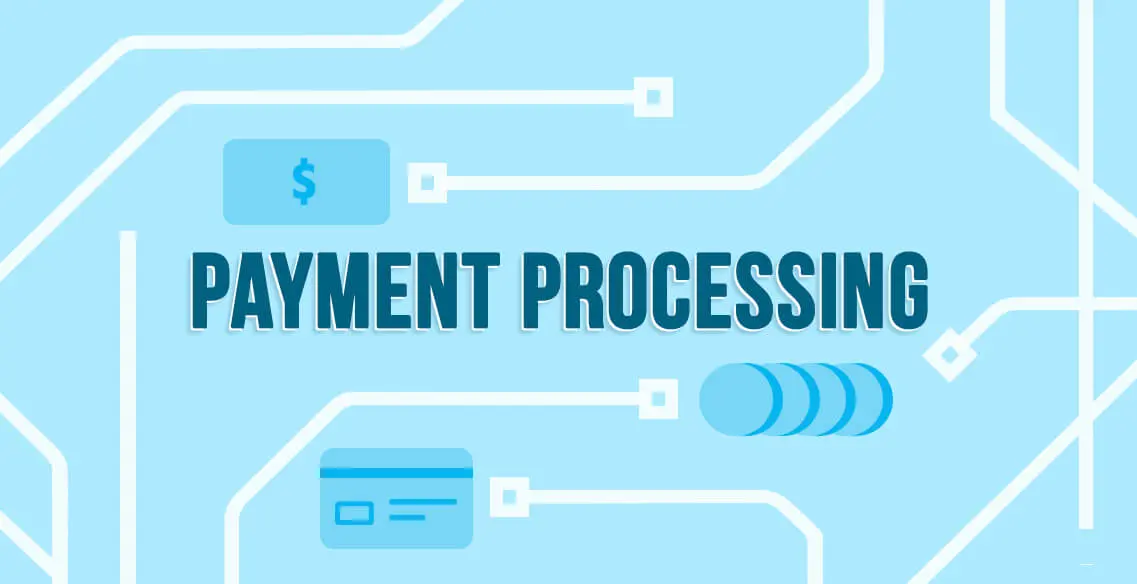
What is Payment Processing?
Payment processing refers to the system by which businesses accept and manage payments for goods or services. In an online setting, this involves securely transferring payment details from customers to businesses, ensuring that transactions are completed accurately and safely. Payment processing services allow businesses to accept various payment methods, including credit and debit cards, e-wallets, bank transfers, and even cryptocurrencies.
For small businesses, an effective payment processor should offer seamless integration with eCommerce platforms, easy-to-use interfaces, competitive transaction fees, and strong security measures. With many options available, choosing the right service can significantly impact your business’s success.
Key Factors to Consider When Choosing a Payment Processor
Before we dive into the best payment processing for small business, it’s important to know what to look for when selecting a provider:
- Transaction Fees: Look for transparent pricing with low transaction fees. Some providers charge a percentage of each sale, while others may charge a flat fee.
- Payment Methods Supported: Ensure the processor can handle a variety of payment methods, such as credit/debit cards, PayPal, Apple Pay, and even newer options like cryptocurrency.
- Security: Your payment processor should comply with Payment Card Industry Data Security Standard (PCI-DSS) regulations and offer fraud prevention features to protect your business and customers.
- Customer Support: Reliable customer service is critical for resolving payment issues quickly and efficiently.
- Integration with Your System: Ensure the payment processor integrates well with your existing point-of-sale (POS) systems, shopping cart software, or invoicing tools.
Leading Online Payment Processing Companies in the USA for 2025
Now let’s explore some of the leading online payment processing companies in the USA that provide exceptional service for small businesses.
| Payment Processor | Key Features | Best For | Fees |
|---|---|---|---|
| Square | Easy-to-use, no monthly fees, mobile payments, inventory management | Small businesses with physical stores | 2.6% + 10¢ per swipe |
| PayPal | Global reach, multiple payment methods, invoicing tools | E-commerce and international sales | 2.9% + 30¢ per transaction (domestic) |
| Stripe | Developer-friendly, subscription billing, mobile and online payments | Tech-savvy businesses and startups | 2.9% + 30¢ per transaction |
| Authorize.Net | Recurring billing, fraud protection, advanced security features | Businesses needing advanced features | 2.9% + 30¢ + $25/month fee |
| QuickBooks Payments | Integration with QuickBooks, invoicing, recurring billing | Small businesses using QuickBooks | 2.4% + 25¢ per transaction |
1. Square
Square is one of the most popular payment processors for small businesses in the USA. Known for its ease of use, Square provides both online and in-person payment processing. Its core features include the ability to accept credit card payments, mobile payments, and even manage your inventory through its POS system. Square charges a competitive rate of 2.6% + 10¢ per swipe, with no monthly fees, making it ideal for small businesses with fluctuating sales volumes.
- Pros: No monthly fees, simple setup, free online store, mobile payments
- Cons: Higher fees for manually entered cards, limited to Square ecosystem for full features
2. PayPal
PayPal is a trusted name in online payment processing and provides a global solution for small businesses looking to accept payments online. PayPal allows businesses to accept a variety of payment methods, including credit cards, debit cards, PayPal balances, and even cryptocurrencies. It also offers invoicing tools, making it ideal for service-based businesses or freelancers. PayPal's fees for domestic transactions are 2.9% + 30¢, and the platform also supports international payments, with competitive currency conversion rates.
- Pros: Accepted worldwide, multiple payment options, integrated invoicing tools
- Cons: Fees can add up for international payments, limited customization
3. Stripe
Stripe is a highly developer-friendly payment processor known for its flexibility and extensive API features. It allows businesses to create custom payment experiences, from subscription billing to mobile payments. Stripe is perfect for businesses that require more advanced integrations and those using eCommerce platforms like Shopify or WooCommerce. Stripe charges 2.9% + 30¢ per transaction with no setup fees, making it cost-effective for businesses with high volumes of online sales.
- Pros: Developer-friendly, subscription billing, extensive integrations, global reach
- Cons: Requires more technical knowledge for setup, limited phone support
4. Authorize.Net
Authorize.Net is a well-established payment processor that offers a wide range of features for small businesses. It includes fraud detection, recurring billing, and the ability to handle advanced reporting and analytics. This platform also integrates seamlessly with a wide variety of shopping carts and POS systems. While Authorize.Net charges 2.9% + 30¢ per transaction, it also has a $25/month fee for using its services, which may be worthwhile for businesses requiring advanced features and higher security.
- Pros: Advanced fraud protection, recurring billing, excellent reporting tools
- Cons: Monthly fee, not as user-friendly for beginners
5. QuickBooks Payments
QuickBooks Payments is perfect for small businesses already using QuickBooks for accounting and invoicing. QuickBooks Payments integrates seamlessly with the accounting software, making it easy to manage payments and track transactions. It also supports recurring billing and offers features like invoicing and payment tracking. QuickBooks Payments charges 2.4% + 25¢ per transaction for swiped payments, and it works well for small businesses that need integration with accounting software.
- Pros: Seamless QuickBooks integration, invoicing tools, competitive fees
- Cons: Limited features outside of QuickBooks, not ideal for non-QuickBooks users
Conclusion
Choosing the right payment processing for small business is critical to managing your business’s cash flow, ensuring secure transactions, and delivering a seamless experience for your customers. Each payment processor mentioned above has its strengths and is designed to cater to different business needs. Whether you’re a small retail shop, an e-commerce store, or a service-based business, the leading online payment processing companies in the USA offer a variety of features to fit your requirements.
By evaluating factors such as transaction fees, ease of use, security features, and customer support, you can choose the best payment processing service for your small business in 2025. Don't forget to consider the scalability of the solution as your business grows and ensure it integrates seamlessly with your existing systems.






